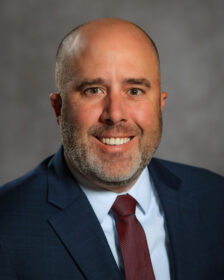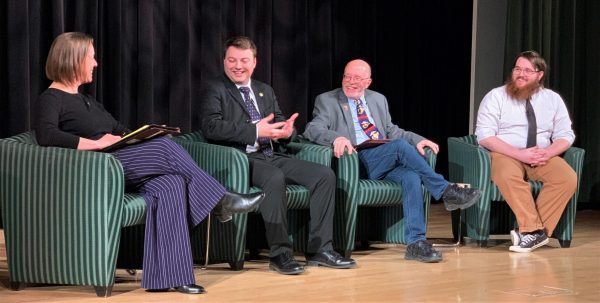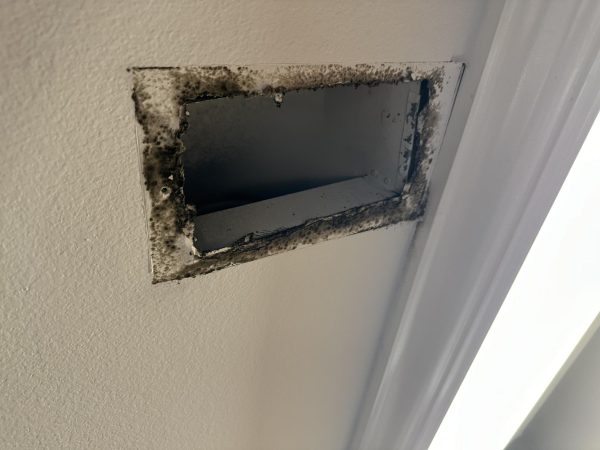Report cites increase in sexual offenses
Crime statistics for 2013 reflect rise in liquor violations, one arson
Four cases of forcible “sexual offense” were reported during the 2013 calendar year at Park University’s Parkville campus, according to a report released Oct. 1.
Each alleged instance occurred on campus in the student housing facilities, the annual security and fire safety report stated. No cases were reported off campus.
The report, which is required as part of the federal Clery Act, includes statistics from 2011 to 2013. No instances of sexual offenses were reported by Campus Safety during 2011 or 2012.
Incidents cited in this report are not limited to acts from students. Crimes can be committed by visitors, staff and faculty or uninvited guests. More details about the cases were not immediately made available to The Stylus due to ongoing investigations or confidentiality reasons.
“We’ve had an increase recently,” said Thia Tomasich, Campus Safety dispatch lead. “I do not believe that we have an increase in those specific crimes so much as the students and staff are feeling more comfortable reporting to us and that we have improved our report-taking skills. (It’s) not that we weren’t taking these reports before but a lot of these (cases) go unreported simply because people don’t feel comfortable or they don’t know that we can do anything about it so they don’t bother.”
The report also highlighted other types of crime and disciplinary violations on campus as well as incidents of general safety and fire. New additions to the 2012 and 2013 reports were cases of domestic and dating violence – of which Park University had zero instances both years.
“There’s always new legislation that comes out and this is the most current product of legislation of what we need to include,” said Christopher Loos, director of Campus Safety. “We actually included that information in last years’ report too, even though it wasn’t required at the time…we were proactive about it and we got it taken care of.”
Burglary cases decreased in 2013 from two in 2012 to zero last year. However, there was one case each of aggravated assault, arson and motor vehicle theft in 2013.
Drug violations – resulting in disciplinary referrals but not arrests – have fluctuated. In 2011, there were 10 offenses; in 2012, zero cases; and 2013, there were six cases.
However, liquor law violations – also disciplinary – on campus rose from seven in 2012 to 13 in 2013.
Neighboring private institution William Jewell College’s report shows a total of eight burglary instances for 2013; one dating violence offense; and 36 liquor law violations in 2013 – a decrease from the 57 in 2012. These numbers reflect activity just on their campus grounds as well.
Tomasich said students should treat this report as a snapshot of what is happening at a school and its surrounding area.
“This should be something you look at when checking out a potential school and then investigate further,” she said.
Tomasich said increasing awareness and strengthening relationships with students may increase reports but decrease incidents overall.
“In the last two years we have drastically improved our department, our relationship with the student body and other staff and faculty here,” she said. “We have worked really hard to re-examine how reports come in and what we can do to improve that relationship with the students to encourage more reporting.”
The annual report also highlights a number of informational elements including definitions of consent, domestic assault and dating violence. These definitions vary from state to state and can be found on page 105 of the report.
“It makes people aware of what the actual definition of consent is and that definition of consent is different in every state,” said Environmental Health and Safety Compliance Coordinator Michelle Budd.
By completing the report annually and distributing it campus-wide, the university is in compliance with federal and state laws.
Budd said to be in compliance means that “timely warnings” are given to students and other stakeholders.
“If a sexual assault were to happen, (to be in compliance would mean) we would give timely warnings to campus to let everybody know what’s going on,” Budd said. “The whole point is to notify the campus community if there’s an immediate danger.”
Campus Safety officials encouraged students, faculty and staff to read the report in its entirety – which is available on the university’s website. If you have any questions, Campus Safety officials said they would answer these and discuss some details of cases unless confidentiality would be breached.
“I just really think it’s important for students or even staff and faculty to know what’s going on in the university and around them outside of the academics and in classes,” said Loos.
Campus Safety officials also said they want to spread the word of their new motto: “If you see something, say something.” Students, faculty and staff can text “safety” to 50911 to report a situation.
The text messages are anonymous, which means Campus Safety can’t respond to gather more details. People who report are encouraged to include as many details as possible in their text message.
Your donation will support the student journalists of Park University. Your contribution will allow us to cover our annual website hosting costs, freeing up other funds for equipment, printing and training.








